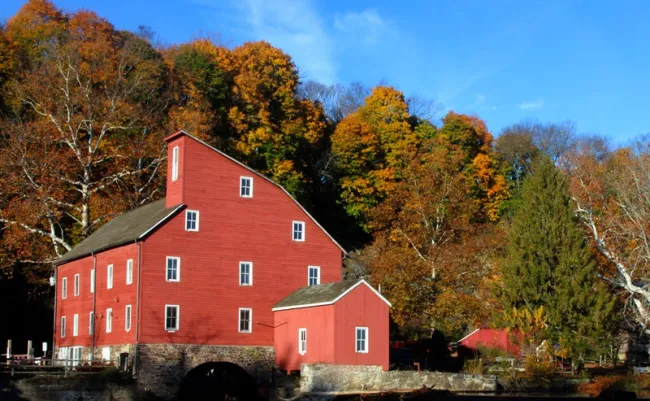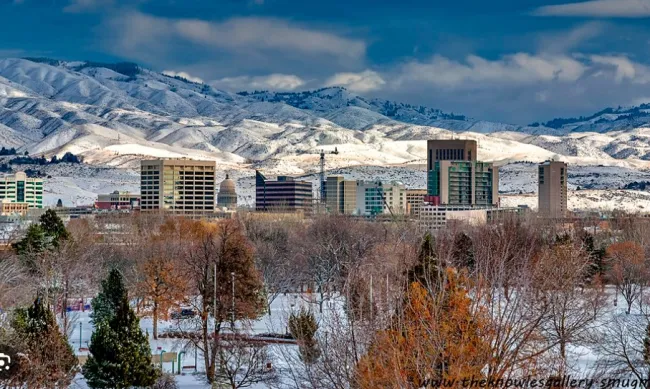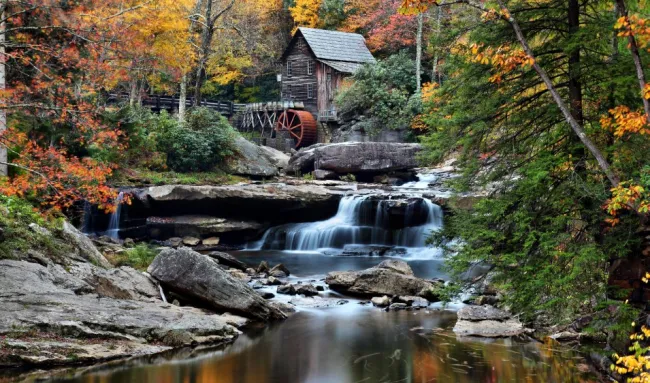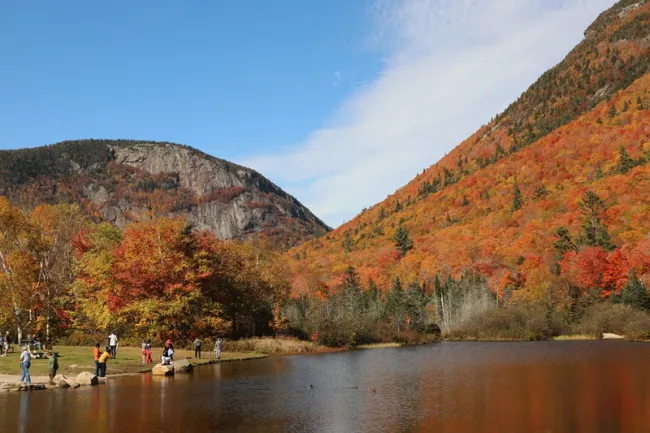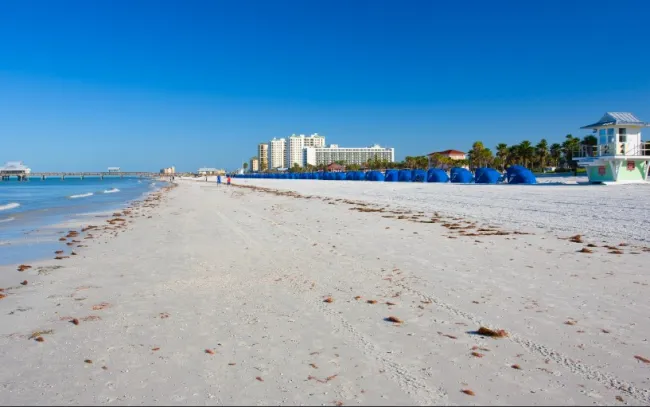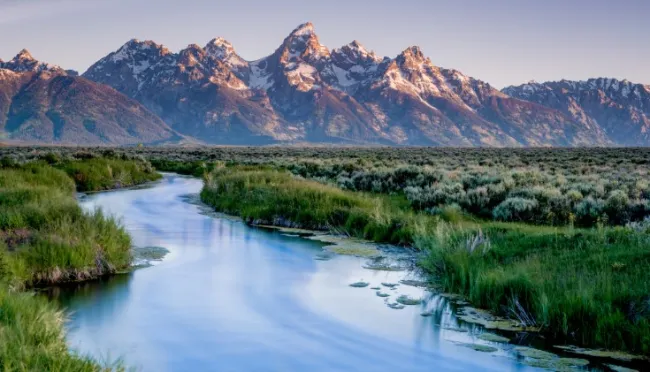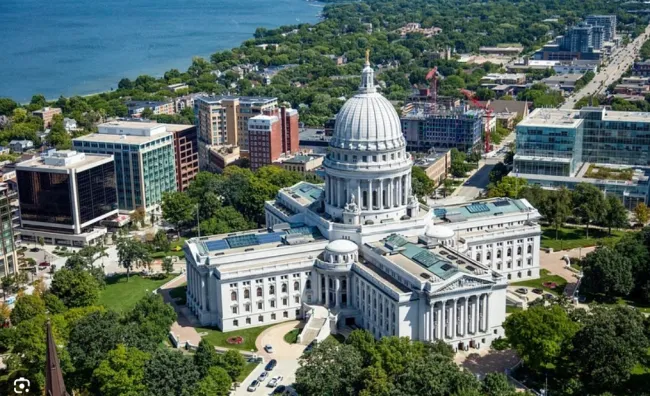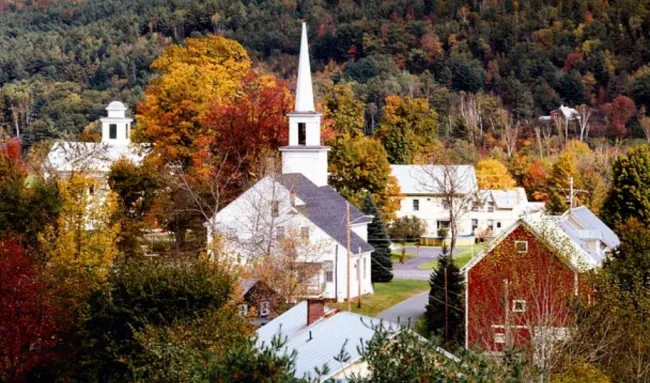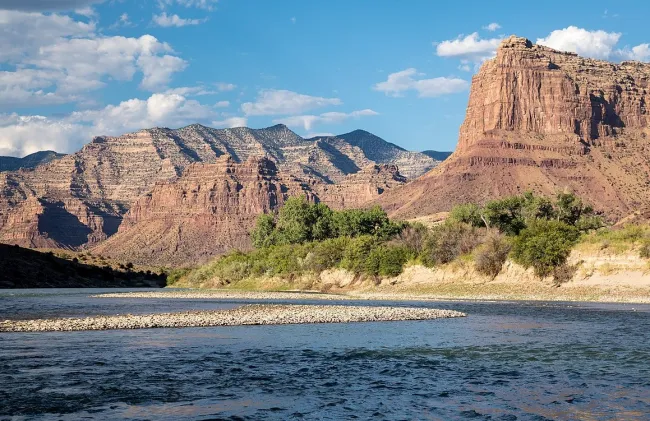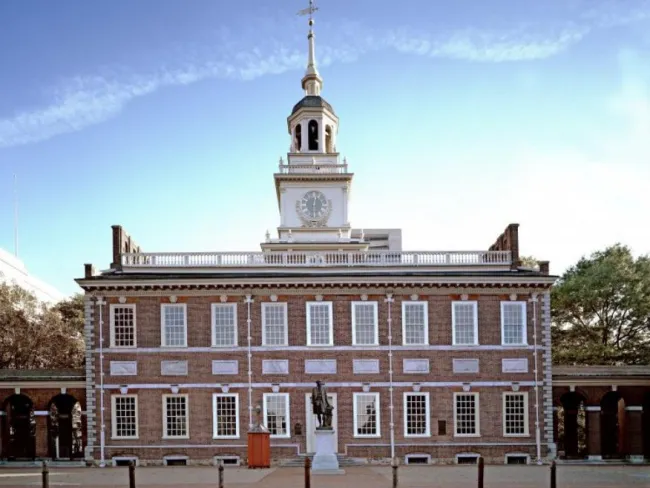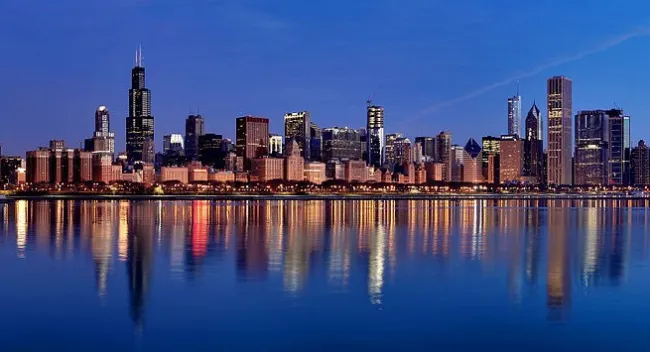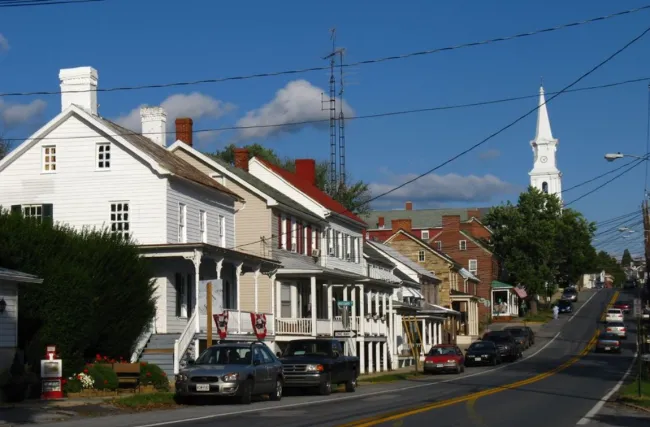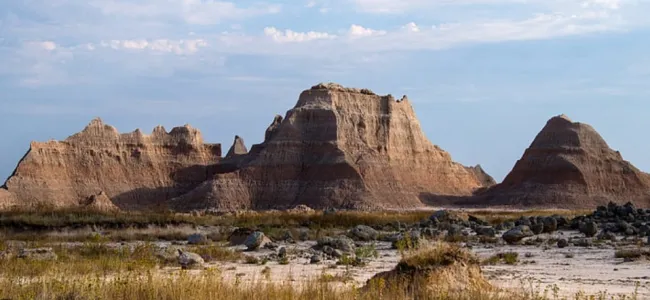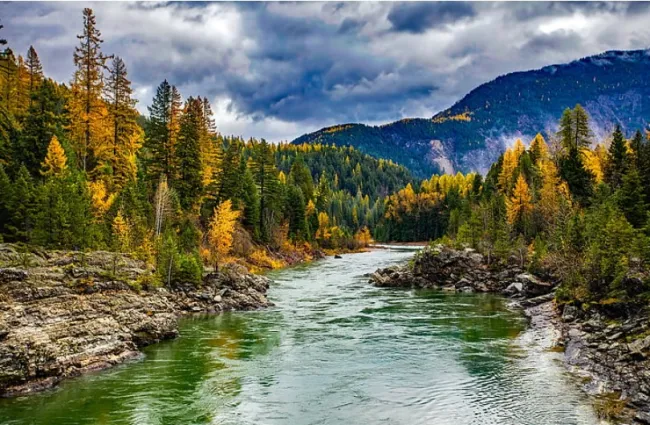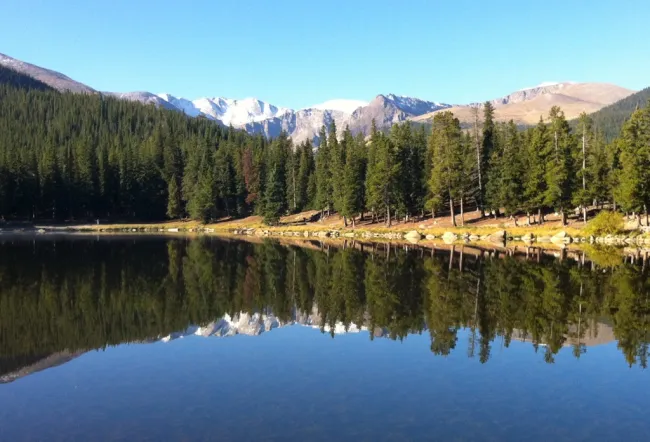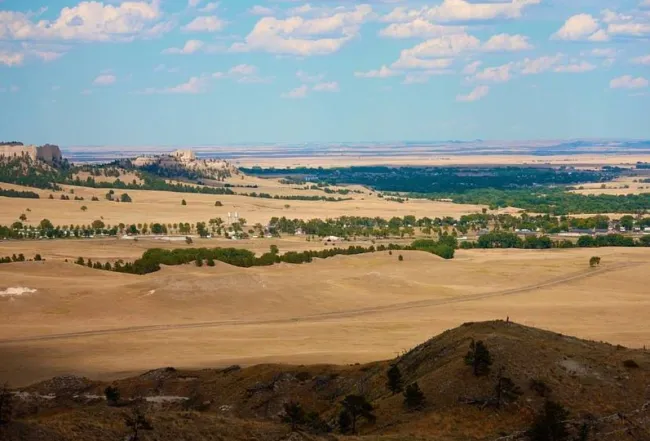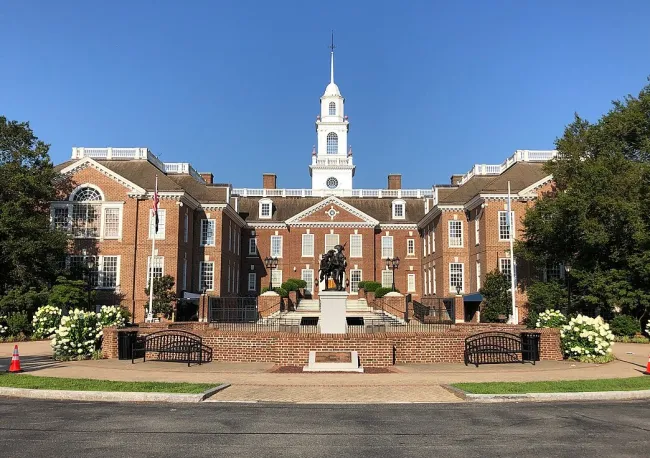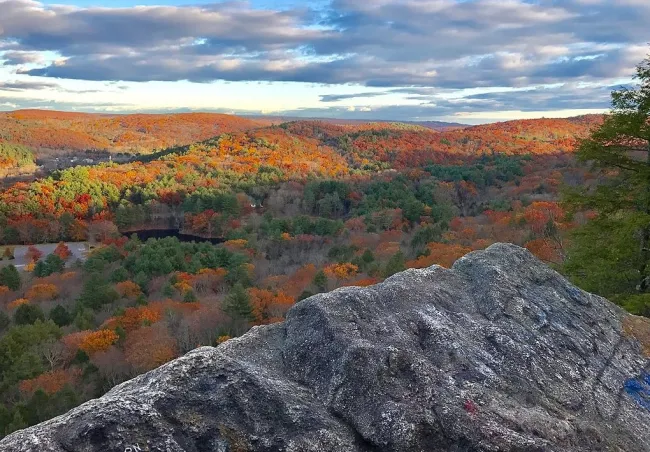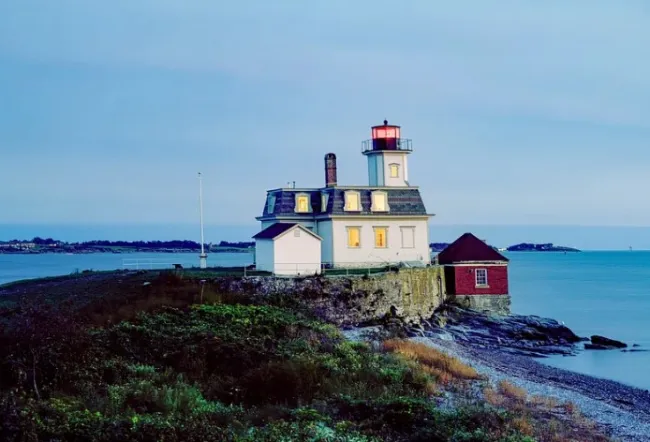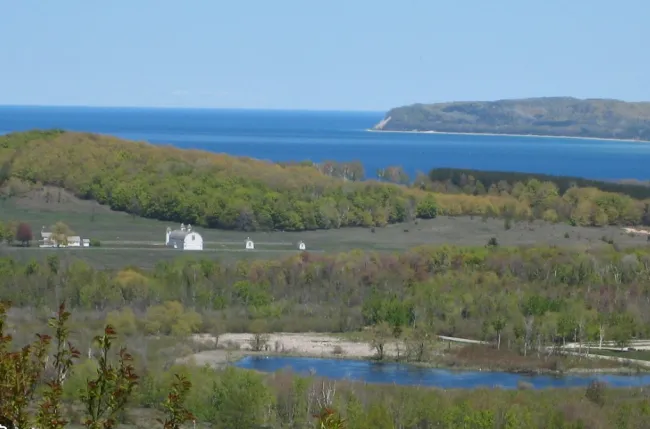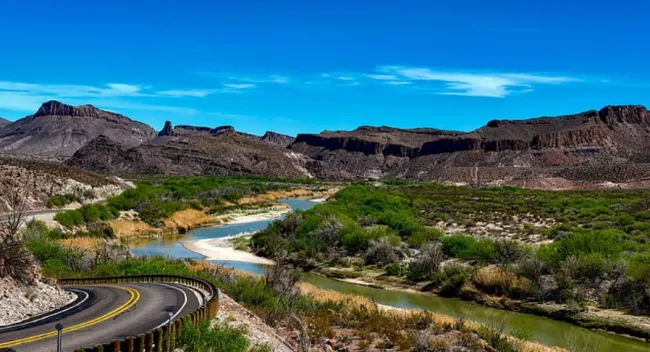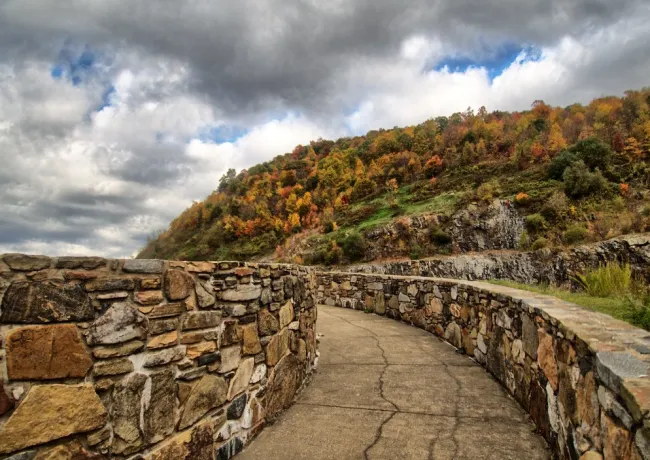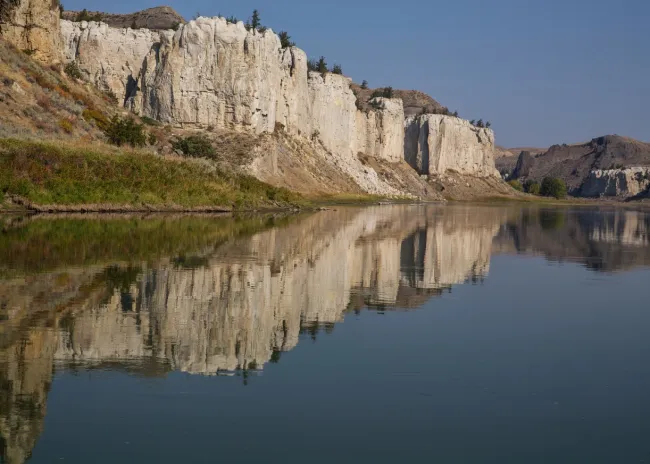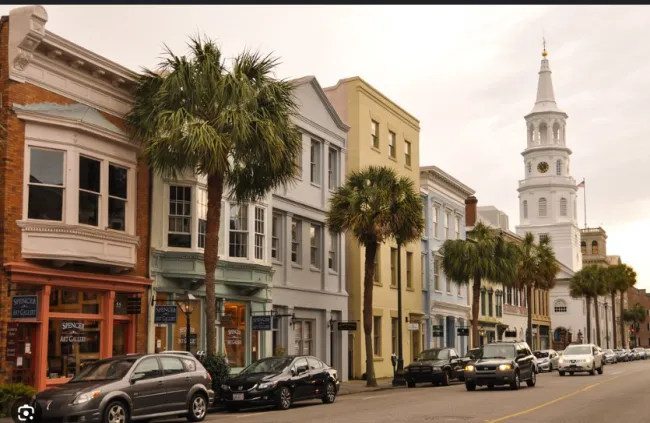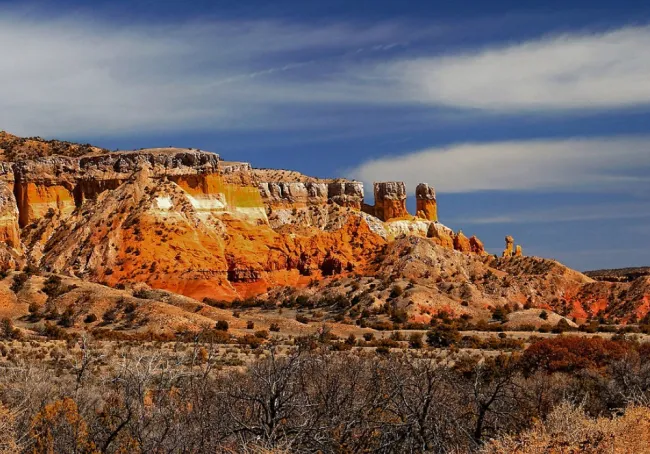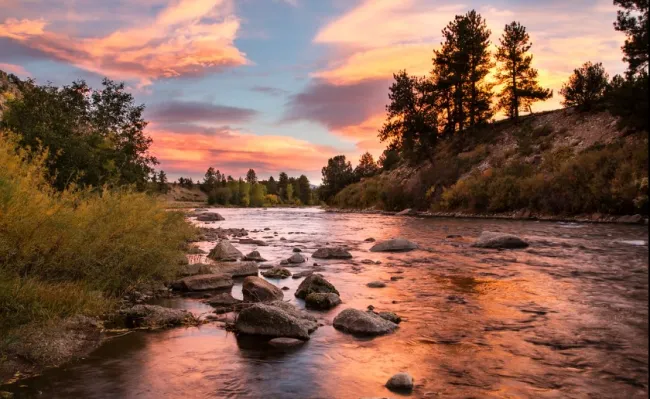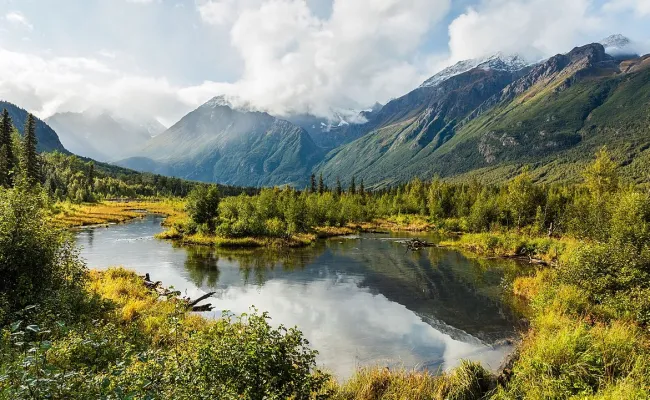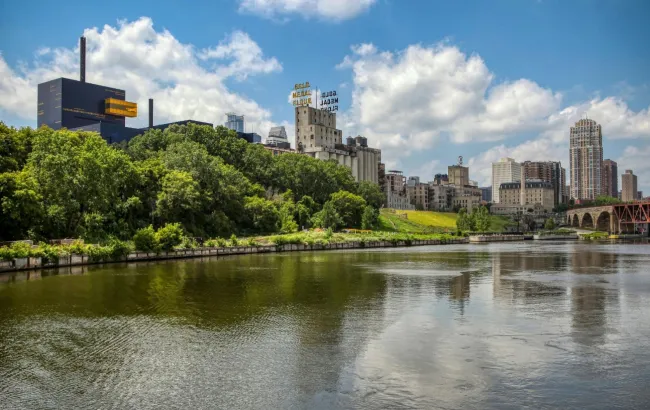Evaluating and Ranking Quality of Life in U.S. States
Evaluating and ranking the quality of life across U.S. states is a multifaceted process that requires careful consideration of various factors. These factors encompass a range of social, economic, environmental, and health-related dimensions. The goal is to create a holistic picture that accurately reflects the living conditions in each state. Below is an in-depth look at the factors considered, how they are measured, and how to appropriately weight them in the ranking process.
Key Factors to Consider
- Economic Stability
- Median Household Income: A strong indicator of the general prosperity of residents.
- Cost of Living: The cost of housing, groceries, utilities, transportation, and healthcare.
- Employment Opportunities: The state’s unemployment rate and job growth potential.
- Health and Healthcare Access
- Healthcare Quality: Availability of quality healthcare, number of healthcare providers, and hospital rankings.
- Health Outcomes: Life expectancy, infant mortality rates, prevalence of chronic diseases, and mental health.
- Health Insurance Coverage: The percentage of the population with health insurance.
- Education
- Educational Attainment: The percentage of the population with high school and higher diplomas.
- School Quality: Public school rankings, student-teacher ratios, and standardized test scores.
- Access to Higher Education: Availability and quality of colleges and universities.
- Safety and Crime
- Violent Crime Rate: Incidence of crimes such as assault, robbery, and homicide per 100,000 residents.
- Property Crime Rate: Incidence of crimes like burglary, larceny, and motor vehicle theft.
- Law Enforcement Presence: Number of law enforcement officers per capita and their effectiveness.
- Environment and Natural Resources
- Air and Water Quality: Pollution levels, access to clean water, and environmental health.
- Parks and Recreation: Availability of public parks, natural reserves, and outdoor recreational opportunities.
- Climate: Weather patterns and the impact of extreme weather events on daily life.
- Infrastructure
- Transportation: Availability and efficiency of public transportation, road quality, and traffic congestion.
- Housing Affordability: Housing market trends, homeownership rates, and rental costs.
- Technology Access: Broadband internet access and technological infrastructure.
- Social and Cultural Life
- Cultural Amenities: Availability of museums, theaters, music venues, and other cultural institutions.
- Community Engagement: Civic participation, volunteerism rates, and the strength of community networks.
- Diversity and Inclusion: The level of diversity within the population and measures of social equality.
- Political Climate
- Governance: State government effectiveness, transparency, and responsiveness to residents' needs.
- Taxation: Overall tax burden on individuals and businesses, including income, property, and sales taxes.
- Regulatory Environment: Ease of doing business and the impact of state regulations on daily life.
- Happiness and Well-Being
- Life Satisfaction: Surveys and studies measuring residents' overall happiness and life satisfaction.
- Work-Life Balance: Average working hours, commute times, and availability of leisure activities.
- Mental Health: Access to mental health services and prevalence of mental health issues.
Evaluating and ranking states based on quality of life requires ongoing analysis and updates, as conditions can change rapidly due to economic shifts, natural disasters, or policy changes. Additionally, individual preferences will influence how much weight each person places on these factors. Therefore, while a composite ranking provides a useful tool for comparison, it is important to consider individual circumstances and values when interpreting the results.
By thoughtfully considering and weighing these factors, a comprehensive ranking can be developed that reflects the diverse aspects of life across the United States, helping residents, policymakers, and businesses make informed decisions.
Here are the states ranked by Quality of Life (lower is better)
1 Massachusetts
Massachusetts consistently ranks high in quality of life metrics, offering a blend of urban sophistication and quaint New England charm. The state boasts top-tier educational institutions, a robust economy, and a strong sense of community. Massachusetts also offers an array of recreational activities, from hiking and skiing in the Berkshires to sailing along the Atlantic coast. However, the fast-paced lifestyle in some areas, particularly around Boston, may not appeal to everyone, especially those seeking a more relaxed retirement.
Massachusetts offers a higher quality of life due to its rich cultural and recreational opportunities but at the cost of a faster pace of life in urban areas.
2 New Jersey
New Jersey boasts a high quality of life, with a mix of bustling cities, charming small towns, and picturesque coastal areas. The state's diverse landscape and proximity to major metropolitan areas like New York City and Philadelphia provide residents with ample opportunities for entertainment, dining, and cultural experiences. The state's public transportation system, including NJ Transit, offers convenient access to these cities, making it ideal for those who enjoy urban outings.
Compared to the national average, New Jersey offers a higher median household income, which contributes to a generally comfortable lifestyle. The state also has a well-developed public education system and numerous recreational opportunities, including state parks, beaches, and golf courses, making it an attractive place for retirees looking to stay active.
3 New York
New York State offers an exceptional quality of life for retirees, thanks to its diverse range of environments and activities. From the bustling streets of New York City to the peaceful countryside of the Adirondacks or the Finger Lakes, there’s something for everyone. The state boasts a rich history, world-class museums, theaters, and cultural institutions that ensure a vibrant lifestyle. Additionally, outdoor enthusiasts can enjoy the state's beautiful parks, hiking trails, and lakes.
Public transportation is excellent in urban areas, especially in New York City, making it easy for retirees to access amenities and social activities. For those who prefer a slower pace, the state’s smaller towns and rural areas offer tranquility and a strong sense of community.
4 Idaho
Idaho's overall quality of life is highly regarded, particularly for retirees. The state boasts breathtaking landscapes, from the Rocky Mountains to expansive forests and rivers. Outdoor enthusiasts will find plenty of activities, including hiking, fishing, and skiing. Idaho's small towns and cities offer a friendly, community-oriented atmosphere, often with a slower pace of life that appeals to many retirees.
Compared to the national average, Idaho residents enjoy a high quality of life, thanks in part to the state's low population density and natural beauty. The state ranks well in terms of public safety, environmental quality, and overall satisfaction.
5 Virginia
Virginia is renowned for its rich history, stunning landscapes, and vibrant communities. The state's overall quality of life is significantly enhanced by its diverse geography, ranging from the Blue Ridge Mountains to the Atlantic Ocean. Virginia offers retirees a variety of recreational activities, including hiking, fishing, and exploring historic sites. The state also boasts a robust economy, which contributes to a higher-than-average quality of life.
Compared to the national average, Virginia scores well in terms of overall quality of life. The state's blend of rural charm and urban convenience allows retirees to enjoy a balanced lifestyle. Virginia also has a relatively low unemployment rate, a good education system, and a well-maintained infrastructure, all of which contribute to a higher standard of living.
6 New Hampshire
New Hampshire consistently ranks high in quality of life metrics, with a strong emphasis on community, natural beauty, and a balanced lifestyle. The state boasts a small-town charm, with friendly residents and a slower pace of life that many retirees find appealing. The state's natural scenery, including mountains, lakes, and forests, provides ample opportunities for outdoor activities such as hiking, skiing, and boating.
Compared to the national average, New Hampshire residents enjoy a high standard of living. The state has a strong economy, low unemployment rates, and a reputation for being a tax-friendly state, particularly for retirees. Social services and community support are robust, ensuring that retirees have access to various programs and activities.
7 Florida
Florida boasts a high overall quality of life for retirees. The state offers a plethora of recreational activities, including golfing, fishing, and beach outings. Florida's retirement communities are well-equipped with amenities and social opportunities, fostering an active and engaged lifestyle. The state's diverse population also provides a rich cultural experience, making it an appealing choice for those seeking variety and vibrancy.
Comparison to National Average: Florida's quality of life is generally considered above average, thanks to its recreational options and retiree-friendly infrastructure. However, the state's popularity can lead to crowded tourist areas and increased demand for services, which can affect the experience in certain regions.
8 Wyoming
Wyoming boasts a high quality of life, characterized by a serene environment, low population density, and abundant outdoor activities. The state's natural beauty, including national parks like Yellowstone and Grand Teton, offers retirees ample opportunities for hiking, fishing, and wildlife observation. Compared to the national average, Wyoming's quality of life is enhanced by its clean air, low traffic congestion, and strong sense of community.
However, the state's rural nature can be a double-edged sword. While it provides peace and tranquility, it may also mean fewer amenities and entertainment options than more urbanized states. Retirees who thrive on a quiet, nature-oriented lifestyle will likely find Wyoming's quality of life appealing, while those seeking vibrant city life may find it lacking.
9 Minnesota
Minnesota consistently ranks high in quality of life metrics. The state offers a blend of vibrant urban centers, such as the Twin Cities of Minneapolis and St. Paul, and scenic rural landscapes. Retirees can enjoy outdoor activities year-round, thanks to numerous parks, lakes, and recreational areas. The state's strong economy, high educational attainment, and low unemployment rates contribute to a stable and prosperous environment.
In comparison to the national average, Minnesota's residents enjoy higher median household incomes and a lower poverty rate. The state also boasts a strong sense of community and civic engagement, which enhances the overall quality of life for retirees.
10 Wisconsin
Wisconsin boasts a high overall quality of life, characterized by a strong sense of community, natural beauty, and a variety of recreational opportunities. The state is known for its picturesque landscapes, including the Great Lakes, rolling hills, and expansive forests. Outdoor activities like fishing, hiking, and boating are popular among residents.
Comparison to National Average: Wisconsin's overall quality of life is generally considered above the national average, particularly due to its low pollution levels, access to nature, and relatively low population density. The state's healthcare and education systems also contribute positively to the quality of life.
11 Maine
Maine is renowned for its high quality of life, characterized by a slower pace, tight-knit communities, and an abundance of natural beauty. The state boasts numerous outdoor recreational opportunities, from hiking and fishing to boating and skiing. The air and water quality are excellent, contributing to a healthy lifestyle. Additionally, Maine has a rich history and vibrant arts scene, with numerous galleries, theaters, and cultural events.
Compared to the national average, Maine's quality of life is exceptional, particularly for those who enjoy outdoor activities and a more relaxed lifestyle. The state's small-town charm and strong sense of community appeal to retirees seeking a peaceful and fulfilling life.
12 Vermont
Vermont consistently ranks high in terms of overall quality of life, thanks to its strong sense of community, clean environment, and abundant recreational opportunities. The state is renowned for its natural beauty, including mountains, lakes, and forests, making it a haven for outdoor enthusiasts. The low population density and lack of urban sprawl contribute to a peaceful lifestyle, with plenty of opportunities for hiking, skiing, and enjoying the great outdoors.
Compared to the national average, Vermont's residents experience lower levels of pollution and enjoy more access to green spaces. The state's commitment to environmental preservation and sustainable living further enhances the quality of life. However, those accustomed to bustling city life may find the pace slower and the amenities more limited.
13 Utah
Utah boasts a high quality of life, with a strong sense of community, clean environment, and a variety of recreational opportunities. The state is known for its outdoor activities, with five national parks, numerous state parks, and ski resorts. Retirees can enjoy hiking, skiing, fishing, and more, all within reach. Compared to the national average, Utah offers a more active and outdoor-oriented lifestyle, appealing to those who enjoy nature and adventure.
The state's infrastructure and amenities, including well-maintained public spaces and cultural institutions, enhance the overall quality of life. Utah also consistently ranks high in national surveys for happiness and life satisfaction, partly due to its strong community ties and family-friendly environment.
14 Pennsylvania
Pennsylvania offers a high quality of life for retirees, with a mix of urban, suburban, and rural areas. The state is rich in history and culture, with numerous museums, historical sites, and art galleries. The state's diverse landscape, from the rolling hills of the Appalachian Mountains to the lush valleys and rivers, provides ample opportunities for outdoor activities such as hiking, fishing, and boating.
Compared to the national average, Pennsylvania's quality of life is bolstered by its affordable housing, a wide range of recreational activities, and a slower pace of life in many areas. However, the quality of life can vary depending on the region, with cities like Philadelphia offering more amenities but also a higher cost of living.
15 Illinois
Illinois offers a mix of bustling urban centers and peaceful rural areas. Cities like Chicago provide access to world-class museums, restaurants, and entertainment, while smaller towns offer a quieter, more relaxed pace. The state's diverse population contributes to a rich cultural tapestry, with numerous festivals, theaters, and cultural events.
Compared to the national average, Illinois' quality of life can vary significantly depending on the region. Urban areas tend to offer more amenities and cultural opportunities, while rural areas may provide a closer-knit community experience. However, the state's political and fiscal challenges have led to concerns about infrastructure and public services.
16 Iowa
Iowa consistently ranks high in overall quality of life due to its low population density, strong sense of community, and balanced pace of life. The state's residents enjoy a blend of urban amenities and rural charm, making it an ideal place for those who appreciate a quieter lifestyle. Iowa boasts a range of recreational activities, from hiking and fishing to cultural festivals and local theaters.
Compared to the national average, Iowa offers a relaxed atmosphere with less congestion and stress. The state also has a reputation for being family-friendly and supportive, with excellent public services and a strong education system.
17 Maryland
Maryland boasts a high quality of life, with access to a wide range of amenities and services. The state has a vibrant mix of urban areas like Baltimore and the suburbs of Washington, D.C., as well as quaint small towns and coastal communities. The availability of outdoor activities, including hiking, fishing, and boating, along with a rich historical and cultural heritage, contributes to a fulfilling lifestyle.
Comparison to National Average: Maryland generally ranks above the national average in overall quality of life due to its strong economy, excellent healthcare, and educational institutions. The state also offers numerous recreational opportunities and a well-developed public transportation system, particularly in the D.C. metropolitan area.
18 North Dakota
North Dakota offers a high quality of life characterized by its strong sense of community, low population density, and scenic landscapes. The state is known for its friendly residents and small-town charm. Outdoor enthusiasts can enjoy numerous recreational activities, from hiking and fishing to bird watching and snowmobiling.
Comparison to National Average: North Dakota's quality of life is enhanced by its low traffic congestion and clean environment, factors that often lead to a more relaxed lifestyle than in more densely populated states. While the state's smaller size may limit access to some amenities found in larger metropolitan areas, the trade-off is a quieter and more peaceful setting.
19 Montana
Montana is renowned for its stunning landscapes, including vast plains, majestic mountains, and pristine lakes. The state's low population density contributes to a slower pace of life, offering retirees a tranquil environment. Outdoor enthusiasts can enjoy activities such as hiking, fishing, and skiing, making Montana an ideal destination for those who love nature.
Compared to the national average, Montana boasts a strong sense of community and a low-stress lifestyle. The state's small-town charm and friendly residents create a welcoming atmosphere. However, those accustomed to urban amenities may find the state's rural nature and limited access to certain services a downside.
20 Colorado
Colorado consistently ranks high in quality of life metrics, thanks to its outdoor recreational opportunities, healthy lifestyle options, and overall well-being. The state offers a wide range of activities, from hiking and skiing in the Rocky Mountains to enjoying city life in Denver. Colorado boasts one of the highest life expectancies in the United States, which is partly attributed to its active lifestyle and clean environment. Compared to the national average, Colorado residents tend to have lower rates of obesity and a higher percentage of people who engage in physical activities.
21 South Dakota
South Dakota offers a high quality of life characterized by a strong sense of community, low population density, and stunning natural landscapes. The state's outdoor recreation opportunities, including hiking, fishing, and national parks, contribute to an active and fulfilling lifestyle. Compared to the national average, South Dakota's residents enjoy a slower pace of life, less traffic congestion, and a generally relaxed atmosphere. The state's smaller cities and towns often have tight-knit communities where neighbors know and support each other, enhancing the quality of life for retirees seeking a peaceful and welcoming environment.
22 Nebraska
Nebraska consistently ranks high in terms of overall quality of life. The state's low population density and wide-open spaces provide a peaceful and relaxed atmosphere, perfect for retirees seeking a slower pace of life. The state boasts a strong sense of community, with friendly locals and numerous small towns that offer a tight-knit feel. Compared to the national average, Nebraska's low unemployment rate and stable economy contribute to a secure and comfortable lifestyle.
In addition to its serene environment, Nebraska offers various recreational opportunities, from hiking and fishing in its numerous state parks to cultural activities in its cities. The state's low traffic congestion and well-maintained roads make travel easy and stress-free.
23 Kansas
Kansas boasts a laid-back lifestyle, characterized by friendly communities and a slower pace of life. The state offers a mix of rural and urban living, with larger cities like Wichita and Kansas City providing amenities such as shopping, dining, and entertainment. Outdoor enthusiasts can enjoy numerous parks, lakes, and nature trails.
Compared to the national average, Kansas provides a more relaxed and less congested environment. While it may lack the bustling activity of coastal states, its emphasis on community and family makes it an attractive option for retirees seeking a quieter life.
24 Delaware
Delaware boasts a high quality of life, characterized by its scenic landscapes, tranquil beaches, and vibrant communities. The state's low population density compared to larger states ensures less congestion and a slower pace of life. Delaware's small size allows for easy travel between its three counties, offering a variety of activities and experiences without long commutes.
The state is known for its clean air, access to outdoor recreation, and rich history. With numerous state parks, wildlife refuges, and historic sites, Delaware provides ample opportunities for nature enthusiasts and history buffs alike.
25 Connecticut
Connecticut consistently ranks high in quality of life metrics, offering a well-rounded experience for retirees. The state boasts a mix of urban and rural areas, providing ample opportunities for both peaceful living and vibrant city life. The state's rich history, top-notch educational institutions, and cultural offerings make it an appealing place to retire.
Compared to the national average, Connecticut offers a higher standard of living, reflected in its well-maintained public spaces, clean environment, and strong community engagement. The state's high median household income also contributes to an overall sense of prosperity and security.
26 Washington
Washington State boasts a high quality of life, characterized by stunning landscapes, a strong economy, and a focus on outdoor activities. The state's natural beauty, from the rugged coastline to the majestic mountains, offers numerous recreational opportunities. The state's urban centers, like Seattle and Spokane, provide a mix of cultural activities, dining, and shopping options.
In terms of overall well-being, Washington consistently ranks above the national average. It has a robust economy, a relatively high median household income, and a strong emphasis on education and public services. However, some may find the state's fast pace and growth challenging, particularly in metropolitan areas.
27 California
California offers an exceptional quality of life, characterized by a diverse range of activities, scenic landscapes, and a mild climate. The state boasts a variety of outdoor opportunities, from beaches to mountains, making it ideal for an active lifestyle. California is home to numerous cultural institutions, theaters, and restaurants, offering endless entertainment options.
Compared to the national average, California's overall quality of life is often seen as higher due to its natural beauty and cultural richness. However, the state's high cost of living can offset these advantages for some retirees.
28 Rhode Island
Rhode Island boasts a high quality of life, with charming coastal towns, historic landmarks, and a strong sense of community. The state's compact size makes it easy to access various amenities and attractions, from beautiful beaches to cultural events. However, Rhode Island's smaller size can also mean fewer options for certain services and amenities compared to larger states.
Compared to the national average, Rhode Island offers a unique blend of small-town charm and coastal beauty. However, it may lack some of the amenities and opportunities available in larger states.
29 North Carolina
North Carolina offers a balanced lifestyle with a mix of urban and rural areas. The state's diverse geography, from the Appalachian Mountains to the Atlantic coast, provides ample recreational opportunities. The state is known for its friendly communities and a slower pace of life, which many retirees find appealing. Compared to the national average, North Carolina's quality of life is enhanced by its natural beauty, moderate climate, and vibrant cultural scene.
Housing and living arrangements are diverse and affordable. North Carolina offers a range of housing options, from coastal condos to mountain cabins. Retirement communities, particularly in cities like Asheville, Wilmington, and the Research Triangle area, provide tailored amenities for seniors. Compared to the national average, housing costs in North Carolina are generally lower, contributing to a higher quality of life for retirees on fixed incomes.
30 Michigan
Michigan boasts a high quality of life, particularly for retirees seeking tranquility and natural surroundings. The state is known for its stunning landscapes, including the Great Lakes, lush forests, and picturesque small towns. The cost of living is generally lower than the national average, making it an attractive option for retirees on a fixed income. Moreover, Michigan offers a slower pace of life, with plenty of recreational activities like fishing, boating, hiking, and golfing. The state also has a rich cultural scene, with a variety of museums, art galleries, theaters, and music venues.
31 Georgia
Georgia boasts a diverse landscape, from the Appalachian Mountains to the Atlantic coastline, offering retirees a variety of lifestyles. The state's vibrant cities, historic towns, and picturesque countryside provide options for all preferences. The quality of life in Georgia is enhanced by a rich cultural heritage, recreational opportunities, and a strong sense of community.
Compared to the national average, Georgia offers a slightly lower cost of living, making it an attractive destination for retirees. The state's friendly atmosphere, combined with Southern hospitality, makes it a welcoming place for new residents.
32 Indiana
Indiana boasts a relatively high quality of life, characterized by a friendly community atmosphere and a slower pace of life compared to bustling metropolitan areas. The state's mix of urban and rural areas provides diverse living environments, from the vibrant city life of Indianapolis to the peaceful countryside. Indiana's quality of life is often highlighted by its low traffic congestion, ample recreational opportunities, and a strong sense of community. Compared to the national average, Indiana offers a more relaxed and stress-free environment, which is particularly appealing to retirees seeking tranquility.
33 Ohio
Ohio offers a diverse and vibrant lifestyle, with access to bustling cities like Columbus, Cleveland, and Cincinnati, as well as charming small towns and beautiful natural landscapes. The state is known for its friendly residents and strong community spirit, making it an inviting place for retirees.
Comparison to National Average: Ohio's quality of life is generally considered above average. The state's blend of urban and rural environments provides a balance that appeals to many retirees. The cost of living, availability of amenities, and access to cultural and recreational activities contribute to a comfortable lifestyle.
34 Texas
Texas offers a diverse range of living environments, from bustling urban areas to peaceful rural communities. The state boasts a strong economy, with a relatively low unemployment rate and a thriving job market, making it an attractive place for retirees looking for part-time work or volunteer opportunities.
Compared to the national average, Texas provides a balanced mix of amenities, recreational opportunities, and community activities. The state's warm climate allows for outdoor activities year-round, including hiking, fishing, and golfing. Additionally, Texas has a reputation for being friendly and welcoming, with a strong sense of community.
35 Oregon
Oregon consistently ranks high in quality of life metrics, thanks to its natural beauty, recreational opportunities, and emphasis on sustainability. The state's emphasis on environmental protection and outdoor activities contributes to a lifestyle that encourages physical well-being and mental health. The presence of numerous state parks, hiking trails, and a vibrant arts scene adds to the richness of life in Oregon.
Compared to the national average, Oregon offers a higher quality of life, particularly for those who value outdoor activities and environmental consciousness. However, the state's focus on conservation can sometimes lead to higher costs and stricter regulations, which may impact some retirees' lifestyles.
36 Tennessee
Tennessee offers a high quality of life, especially for retirees. The state's diverse landscapes, from the Appalachian Mountains in the east to the Mississippi River in the west, provide ample opportunities for outdoor recreation. Residents enjoy a slower pace of life, with a strong emphasis on community and family values. Tennessee's vibrant music and arts scene, particularly in cities like Nashville and Memphis, adds to the cultural richness of the state.
Compared to the national average, Tennessee offers a more relaxed lifestyle with a lower population density, which can be appealing to retirees looking to escape the hustle and bustle of larger metropolitan areas.
37 Missouri
Missouri's overall quality of life is characterized by its friendly communities, scenic beauty, and variety of recreational activities. The state offers a mix of urban and rural settings, with bustling cities like St. Louis and Kansas City providing cultural amenities and smaller towns offering a slower pace of life. The state's diverse geography includes the Ozark Mountains, the Missouri River, and numerous lakes, providing ample opportunities for outdoor activities such as fishing, hiking, and boating.
Compared to the national average, Missouri offers a relatively laid-back lifestyle with plenty of opportunities for community involvement and leisure activities. The state's central location also makes it easy to travel to other parts of the country, whether for family visits or vacations.
38 Arizona
Arizona offers a unique and attractive quality of life, particularly for retirees. The state is known for its breathtaking landscapes, including the Grand Canyon, vast deserts, and mountain ranges. The abundant sunshine and warm weather contribute to an active outdoor lifestyle, with plenty of opportunities for hiking, golfing, and exploring nature.
Compared to the national average, Arizona provides a relatively peaceful and laid-back lifestyle. The state has a slower pace of life, making it an appealing choice for those looking to escape the hustle and bustle of more densely populated areas. Arizona's cities and towns vary in size and amenities, offering a range of options from bustling urban centers like Phoenix to quieter, smaller communities.
39 Nevada
Nevada's overall quality of life is appealing to many retirees. The state boasts a diverse landscape, including the bustling city of Las Vegas, the serene beauty of Lake Tahoe, and vast desert expanses. The variety of recreational activities, from hiking and skiing to entertainment and dining, adds to the quality of life. However, the quality of life can vary significantly depending on the region. Cities like Las Vegas and Reno offer more amenities and activities, while rural areas may provide a quieter lifestyle.
Compared to the national average, Nevada offers a unique blend of urban and rural experiences, making it an attractive option for retirees looking for diverse living conditions. The lack of state income tax is also a notable benefit, making it financially appealing.
40 Hawaii
Hawaii consistently ranks high in terms of overall quality of life, thanks to its breathtaking landscapes, outdoor activities, and strong sense of community. The state's Aloha spirit fosters a welcoming atmosphere, and the slower pace of life can be a refreshing change for many retirees. Residents enjoy access to stunning beaches, lush rainforests, and vibrant coral reefs, making it an ideal location for nature enthusiasts.
Compared to the national average, Hawaii's quality of life is often seen as superior due to its natural beauty and unique cultural experiences. However, the high cost of living can be a significant trade-off for this idyllic lifestyle.
41 West Virginia
West Virginia boasts a high quality of life, largely due to its scenic beauty and peaceful surroundings. The state is characterized by its rolling hills, dense forests, and numerous rivers, providing ample opportunities for outdoor activities like hiking, fishing, and bird watching. The slower pace of life and friendly communities contribute to a relaxed and welcoming atmosphere.
Compared to the national average, West Virginia offers a quieter and more serene lifestyle, making it an ideal choice for those seeking a peaceful retirement. However, it is important to note that the state's rural nature can mean fewer amenities and services compared to more urbanized states.
42 Kentucky
Kentucky offers a balanced lifestyle with a mix of urban and rural settings. The state boasts a low population density, providing plenty of open spaces and opportunities for outdoor activities like hiking, fishing, and exploring the Appalachian Mountains. The state's warm hospitality and friendly communities contribute to a welcoming atmosphere for retirees.
Kentucky's quality of life is enhanced by its natural beauty and community-focused culture. While it may not offer the same amenities as larger states, its charm lies in its simplicity and slower pace, which can be appealing for retirees seeking tranquility.
43 Alabama
Alabama provides a relaxed and friendly atmosphere, with a strong sense of community. The state boasts diverse natural landscapes, from the Gulf Coast beaches to the Appalachian Mountains, offering numerous recreational opportunities. The slower pace of life and emphasis on family and tradition contribute to a comforting environment for retirees.
While Alabama's quality of life can vary depending on the specific area, it generally offers a more laid-back lifestyle compared to the bustling metropolitan regions of the country. The state's affordability and natural beauty are significant positives, though some areas may lack the amenities found in larger urban centers.
44 Oklahoma
Oklahoma boasts a high quality of life for retirees. The state's combination of urban amenities and rural charm provides a balanced lifestyle. Cities like Oklahoma City and Tulsa offer vibrant cultural scenes, while smaller towns provide a peaceful and slower-paced environment. The state's friendly and welcoming residents, often referred to as "Southern hospitality," add to the overall warmth and comfort of living here.
45 South Carolina
South Carolina offers a generally high quality of life, characterized by a slower pace, warm climate, and a variety of outdoor activities. The state's diverse landscapes include coastal beaches, scenic mountains, and lush forests, providing ample opportunities for recreation. The cost of living is lower than the national average, making it an attractive destination for retirees. Moreover, the state's emphasis on community and friendly atmosphere contributes to a welcoming environment for newcomers.
National Average Comparison: South Carolina tends to have a more relaxed lifestyle compared to the national average, with a strong focus on community and outdoor living. While some areas may lack the urban amenities of larger states, the overall quality of life is generally favorable for retirees seeking a peaceful and scenic environment.
46 New Mexico
New Mexico: New Mexico boasts a relaxed and laid-back lifestyle, perfect for retirees looking for a slower pace. The state is renowned for its stunning landscapes, including deserts, mountains, and forests, providing ample opportunities for outdoor activities like hiking, biking, and birdwatching. The cultural richness, influenced by Native American and Hispanic traditions, offers a vibrant arts scene and a variety of festivals and events.
National Average: While the overall quality of life in New Mexico is high, it may differ from more urbanized states. The state’s rural nature means less access to amenities found in larger cities, but it also offers a quieter, more peaceful living environment.
47 Arkansas
Arkansas offers a slower-paced, relaxed lifestyle, which is often appealing to retirees. The state is rich in natural beauty, with the Ozark and Ouachita Mountains, numerous lakes, and state parks providing ample opportunities for outdoor activities. Compared to the national average, the state's overall quality of life is shaped by its small-town charm, friendly communities, and a sense of tranquility. However, it lacks some of the urban amenities and entertainment options found in larger states.
48 Louisiana
Louisiana's overall quality of life offers a blend of cultural richness and natural beauty. The state boasts a diverse environment, from the bustling city life of New Orleans to the tranquil bayous and countryside. The state's unique blend of Southern hospitality and a slower pace of life appeals to many retirees.
Louisiana ranks lower than the national average in several quality-of-life indices due to factors such as education and healthcare. However, the state's vibrant culture, strong community bonds, and abundant outdoor activities offer a fulfilling lifestyle for many.
49 Alaska
Alaska's overall quality of life is shaped by its natural beauty, outdoor activities, and close-knit communities. The state's vast wilderness provides ample opportunities for fishing, hiking, and wildlife viewing, appealing to retirees who enjoy nature and outdoor pursuits. The pace of life in many Alaskan towns is slower and less congested than in the lower 48 states, which can be appealing to those seeking a more tranquil lifestyle.
However, Alaska's remoteness can be both a blessing and a challenge. While the sense of community and connection with nature is strong, the state's isolation can lead to feelings of seclusion, especially during the long winter months. Unlike the national average, where a variety of amenities and entertainment options are more accessible, Alaska's limited urban areas may restrict access to certain cultural and recreational activities.
50 Mississippi
Mississippi offers a laid-back lifestyle with a strong sense of community. The state boasts a slower pace of life, making it ideal for those seeking a peaceful retirement. The sense of camaraderie among residents, coupled with the state's natural beauty, contributes positively to the overall quality of life.
Mississippi's overall quality of life is generally seen as lower than the national average due to lower economic opportunities and healthcare access. However, its warm community and low population density provide a relaxed environment that many retirees find appealing.






